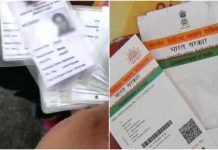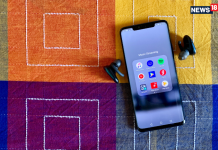It become very important to remain secure, as no one likes to lose their hard-earned money in a blink of an eye. It can be overwhelming and distressful when you receive a message that a certain amount has been debited from your bank account.

In the world of technology, many banking systems have fallen prey to cyber threat and crime. It become very important to remain secure, as no one likes to lose their hard-earned money in a blink of an eye. It can be overwhelming and distressful when you receive a message that a certain amount has been debited from your bank account. First few questions will be: When did i carry that transactions, how can an amount be debited, who can do it? It’s a long list of sad questions, because the fraudsters way of hijacking your bank account and financial credentials are like piece of cake. Some of the ways are phishing mails, sim-swap fraud, mobile applications and even fake bank mobile apps. Interestingly, if you are an ICICI Bank customer, then be aware as your bank warns about rogue mobile banking apps.
Rogue mobile banking apps are illegitimate or “look alike” banking apps with embedded malware with an intention to steal sensitive/critical data or banking credentials. These may be generally available online as freeware.
In its official twitter account, ICICI Bank says, “Always double check the website address before doing any online transaction. Practice #SafeBanking with #ICICIBank.”
On its website, ICICI Bank directs customers by saying, “Cyber criminals are known to imitate legitimate versions of apps and embed them with mobile malware – an act called Trojanizing. These malicious apps are designed to look like real mobile banking apps. Cybercriminals use different tricks like using the same images and icons and closely imitating the publisher’s name.”
How to spot rogue mobile apps?
1. Some rogue mobile apps may come with well-written legal terms usually highlighting the fact that the app may charge you. Even if these legal terms make the app seem legit, its best you read them carefully
2. The rogue app can drain your phone battery really fast. So battery running low frequently might be a sign of infection with malware or virus
3. Check your phone bill periodically and keep tabs on any suspicious activity. If you spot unusual activity in your phone or in your bill, contact your mobile network provider
4. Check the app’s download page for inconsistencies or misspellings. Those are tell-tale signs of a fake.
Here are some precautions for safe and secure mobile banking, as per ICICI Bank.
1. Set up a Pin/password to access the handset menu on your mobile phone. Register/ update your mobile number and e-mail ID for alerts to keep track of your banking transactions.
2. Delete junk message and chain messages regularly.
3. Do not follow any URL in message that you are not sure about.
4. If you have to share your mobile with anyone else or send it for repair/maintenance:
- Clear the browsing history
- Clear cache and temporary files stored in the memory as they may contain your account numbers and other sensitive information
- Block your mobile banking applications by contacting your bank. You can unblock them when you get the mobile back
- Clear the browsing history
5. Do not save confidential information such as your debit/credit card numbers,CVV numbers or PIN’s on your mobile phone.
6. Do not part with confidential information received from your bank on your mobile
Install an effective mobile anti-malware/anti-virus software on your smartphone and keep it updated.
7. Keep your mobile’s operating system and applications, including the browser, updated with the latest security patches and upgrades.
8. Password-protect your mobile device to protect against unauthorised access. Set up a Pin/password that is difficult to crack.
9. Do not enable auto-fill or save user IDs or passwords for mobile banking online.
10. If possible, maximise the security features by enabling encryption, remote wipe and location tracking on device.
11. Never leave your mobile phone unattended.
12. Turn off wireless device services such as Wi-Fi, Bluetooth and GPS when they are not being used. The Bluetooth can be set up in invisible mode.
13. Avoid using unsecured Wi-Fi, public or shared networks.
14. Do not use “jailbroken” or “rooted” devices for online banking. Jailbreaking or rooting a device (the process of breaking into the phone’s built-in operating system to control it outside the vendor’s original intention) exposes the device to additional malware and gains administrative or privileged access of OS.
15. Only download apps from official app stores such as Apple iTunes, Android Marketplace, Google Play Store and BlackBerry App World.
16. Never disclose personal information or online banking credentials via e-mail or text message as these can be used for identity theft.
17. Log out from online mobile banking or application as soon as you have completed your transactions. Also make sure you close that window.
18. Be aware of shoulder surfers. Be extra careful while typing confidential information such as your account details and password on your mobile in public places.
19. In case you lose your mobile phone, please call our 24-hour Customer Care to disable the iMobile application.
Hence, it is always advisable to stay alert and vigilant!






























